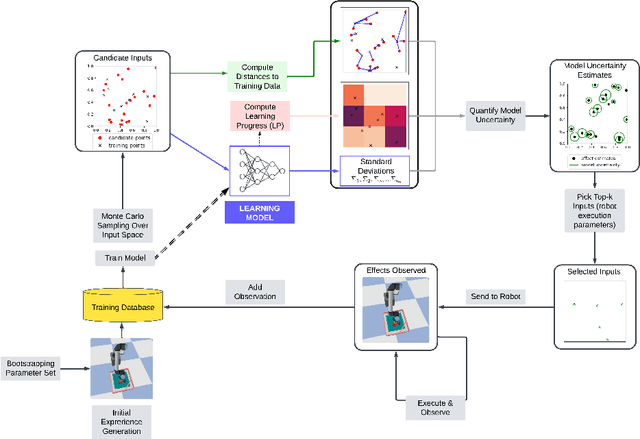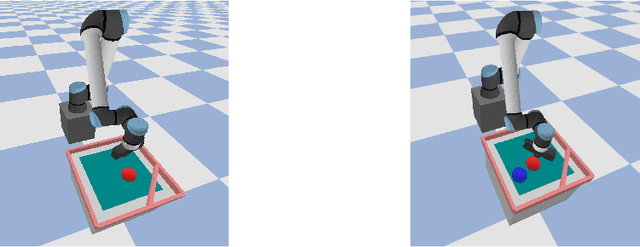Sample Efficient Robot Learning in Supervised Effect Prediction Tasks
Paper and Code
Dec 03, 2024



In self-supervised robot learning, robots actively explore their environments and generate data by acting on entities in the environment. Therefore, an exploration policy is desired that ensures sample efficiency to minimize robot execution costs while still providing accurate learning. For this purpose, the robotic community has adopted Intrinsic Motivation (IM)-based approaches such as Learning Progress (LP). On the machine learning front, Active Learning (AL) has been used successfully, especially for classification tasks. In this work, we develop a novel AL framework geared towards robotics regression tasks, such as action-effect prediction and, more generally, for world model learning, which we call MUSEL - Model Uncertainty for Sample Efficient Learning. MUSEL aims to extract model uncertainty from the total uncertainty estimate given by a suitable learning engine by making use of earning progress and input diversity and use it to improve sample efficiency beyond the state-of-the-art action-effect prediction methods. We demonstrate the feasibility of our model by using a Stochastic Variational Gaussian Process (SVGP) as the learning engine and testing the system on a set of robotic experiments in simulation. The efficacy of MUSEL is demonstrated by comparing its performance to standard methods used in robot action-effect learning. In a robotic tabletop environment in which a robot manipulator is tasked with learning the effect of its actions, the experiments show that MUSEL facilitates higher accuracy in learning action effects while ensuring sample efficiency.
 Add to Chrome
Add to Chrome Add to Firefox
Add to Firefox Add to Edge
Add to Edge